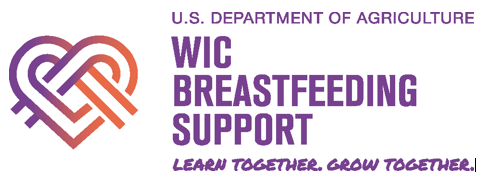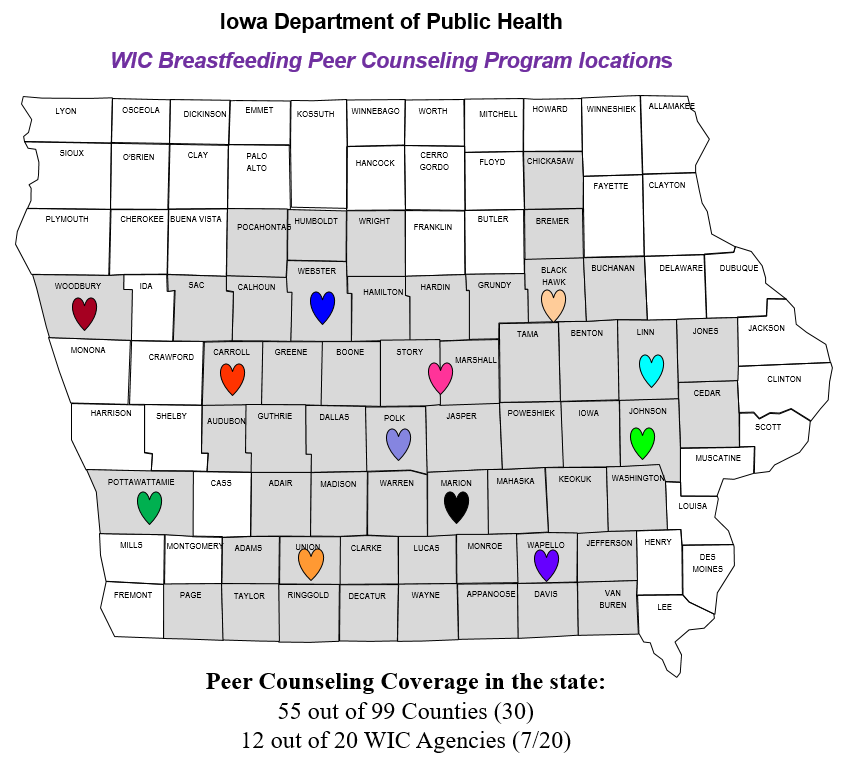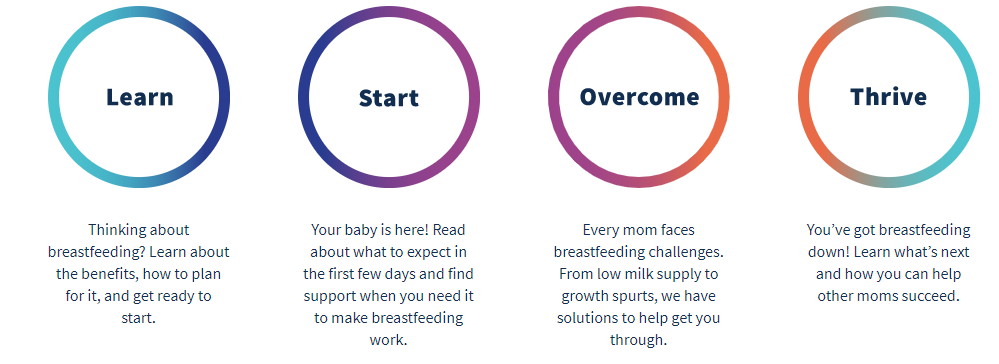Peer Counseling
WIC Breastfeeding Peer Counseling
|
|
 WIC Peer Counselors are paraprofessional women, who have successfully breastfed despite barriers and challenges, and are enthusiastic about sharing their breastfeeding experience and knowledge with women of their culture and language. Peer counselors work closely with WIC and healthcare providers to promote breastfeeding in their communities. WIC Peer Counselors are paraprofessional women, who have successfully breastfed despite barriers and challenges, and are enthusiastic about sharing their breastfeeding experience and knowledge with women of their culture and language. Peer counselors work closely with WIC and healthcare providers to promote breastfeeding in their communities.
The use of breastfeeding peer counselors adds value to WIC’s efforts to help women initiate and continue breastfeeding. WIC breastfeeding peer counselors provide a valuable service to their communities, addressing the barriers to breastfeeding by offering breastfeeding education, support, and role modeling. Peer counselors are familiar with the resources available to WIC clients, are familiar with the questions a breastfeeding mother may ask, and recognize when to refer mothers to other resources during critical periods when mothers may experience difficulty.
Currently 12 of the 20 WIC Program Agencies in Iowa offer Peer Counseling services; Broadlawns Medical Center in Des Moines, New Opportunities in Carroll, HACAP in Cedar Rapids, Webster County Health Department in Fort Dodge, Marion County Public Health in Knoxville, American Home Finding in Ottumwa, MATURA Action Corporation in Creston, Mid-Iowa Community Action in Marshalltown and Ames, Operation Threshold in Waterloo, Siouxland District Health Department in Sioux City, Johnson County Public Health in Iowa City, and Pottawattamie County WIC in Council Bluffs. There are nearly 40 trained Peer Counselors in these 12 agencies serving over 1,400 pregnant and breastfeeding mothers a year.
Peer Counselors are effective in promoting and sustaining breastfeeding among WIC mothers.

|
Resources
Counseling Guides
Resource guides developed by the Iowa Breastfeeding Coalition are available for use by healthcare professionals who provide counseling to breastfeeding mothers. These resources and information on becoming a memeber of the coalition can be accessed on the Iowa Breastfeeding Coalition website.
WIC Breastfeeding Support: Learn Together. Grow Together
Breastfeeding is a journey. There are ups and downs and feelings of accomplishment and frustration. For more information that can equip moms with support and resources they need to successfully breastfeed by visit the U.S. Department of Agricultures Food and Nutrition Services Special Supplemental Nutrition Program for Women, Infants, and Children (WIC) website. Explore the Stages of Breastfeeding, LEARN, START, OVERCOME, AND THRIVE, through written information, videos, visual aids, and more.

Peer Counselor: Quotes
"The thing I find most rewarding about my job as a breastfeeding peer counselor is...
"when I can help a mom who is feeling overwhelmed and thinking they may have no choice but to quit breastfeeding, figure out the issue and get back to a positive and healthy journey together. Seeing their stress melt away and feeling the relief they have in knowing they can continue their breastfeeding journey is a great feeling." Miranda K
"when I get to sit face to face with a mom and tell her 'it's okay, I get it and we're going to work through this-you are not alone.'" Laura B
"when I have a mom who says she is not going to breastfeed and then I get a call that mom has changed her mind and is enjoying breastfeeding and she makes it a whole year." Yolonda Q
"helping moms connect and bond with their babies as they embrace motherhood, overcome obstacles, and meet their breastfeeding goals. It's also fun to interact with other professionals promoting breastfeeding." Karen D
"empowering new moms to feel confident in their ability to nourish and provide for their babies, and watching them learn about themselves through becoming a mother." Brittany M